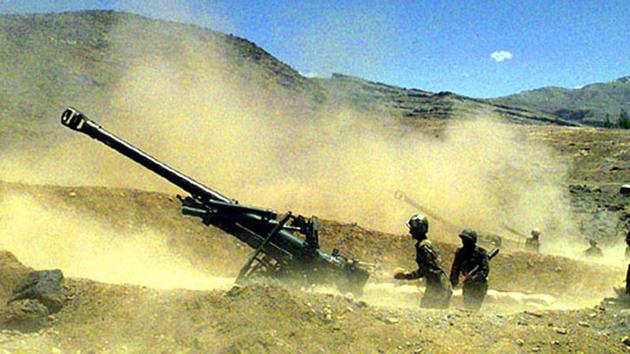India could strike Pakistan with nuclear weapons if threatened, says expert
India could junk its no-first use policy to launch a preemptive first strike against Pakistan if it feared a nuclear attack was imminent, a leading nuclear strategist has said.
There is increasing evidence that India could launch a preemptive first strike against Pakistan if it feared a nuclear attack was imminent, in a marked reversal of its well-known no-first use policy, according to a leading nuclear strategist.

But this first strike will not be aimed at urban centres and conventional targets of a retaliatory strike intended to punish and prevent an escalation, but against Islamabad’s nuclear arsenal, to preempt a nuclear attack altogether.
“There is increasing evidence that India will not allow Pakistan to go first,” Vipin Narang, a nuclear strategist from the Massachusetts Institute of Technology, said at a conference on nuclear policy hosted by Carnegie, a think tank, on Monday.
“India’s opening salvo may not be conventional strikes trying to pick off just Nasr batteries (launch vehicles for Pakistan’s tactical battlefield nuclear warheads) in the theatre, but a full ‘comprehensive counterforce strike’ that attempts to completely disarm Pakistan of its nuclear weapons so that India does not have to engage in iterative tit-for-tat exchanges and expose its own cities to nuclear destruction,” he said. Comprehensive counterforce is an informal phrase used to describe counterattack on a nuclear arsenal.
Relations between the neighbours are at the lowest since a string of militant attacks on Indian military installations which New Delhi blames on Pakistan-based militants. India last year claimed to have carried out surgical strikes against militant launch pads in Pakistan-occupied Kashmir but Islamabad denied any such operation took place.
In February, both countries extended a bilateral pact, dealing with reducing the risk of nuclear weapon-related accidents including a war, for a period of five years. India hand Pakistan have fought three full-fledged wars besides the 1999 Kargil hostilities.
As evidence for his theory, Narang cited recent remarks and policy prescriptions from leading Indian strategists and a book by Shivshankar Menon, who oversaw nuclear targeting for India as National Security Adviser to Prime Minister Manmohan Singh. Narang also quoted Menon as telling Ajai Shukla, a defense analyst with Business Standard, that “India’s nuclear doctrine has far greater flexibility than it gets credit for”.
To buttress his theory, Narang cited this para from Menon’s book, “Choices: Inside the Making of Indian Foreign Policy”, which was released in November 2016 but has found a new celebrity recently, to build his case: “There is a potential gray area as to when India would use nuclear weapons first against another NWS (nuclear weapon state). Circumstances are conceivable in which India might find it useful to strike first, for instance, against an NWS that had declared it would certainly use its weapons, and if India were certain that adversary’s launch was imminent.”
New Delhi declared its no-first use strike policy in 2003, undertaking to not start a nuclear war in a neighborhood packed with nuclear actors Pakistan and its hermetically stoic backer China, countries that had fought wars with India.
But it set aside some key exceptions, gray areas, such as reserving the right to strike first if it came under biological or chemical attack, that may have left the door open, for arguments sake, to a latter day switch to a more aggressive stand.
Under its earlier policy India had hoped to use the threat of “massive counter-value retaliation” — read civilian targets such as urban populations mostly — disproportionate in intensity to the attack, as a disincentive for a nuclear attack against it.
But as Pakistan, which has the world’s fastest growing nuclear arsenal, segued to smaller battlefield nuclear weapons, called tactical weapons, to offset Indian superiority in conventional warfare, New Delhi was forced to rethink its choices.
There are also worries in India that New Delhi might not have full information on the whereabouts of Pakistan’s nuclear weapons and tactical warheads that are much smaller and mounted on lorries to be driven around to escape detection through satellite imagery.
Get Current Updates on India News, Lok Sabha Election 2024 Live, Election 2024 along with Latest News and Top Headlines from India and around the world.



